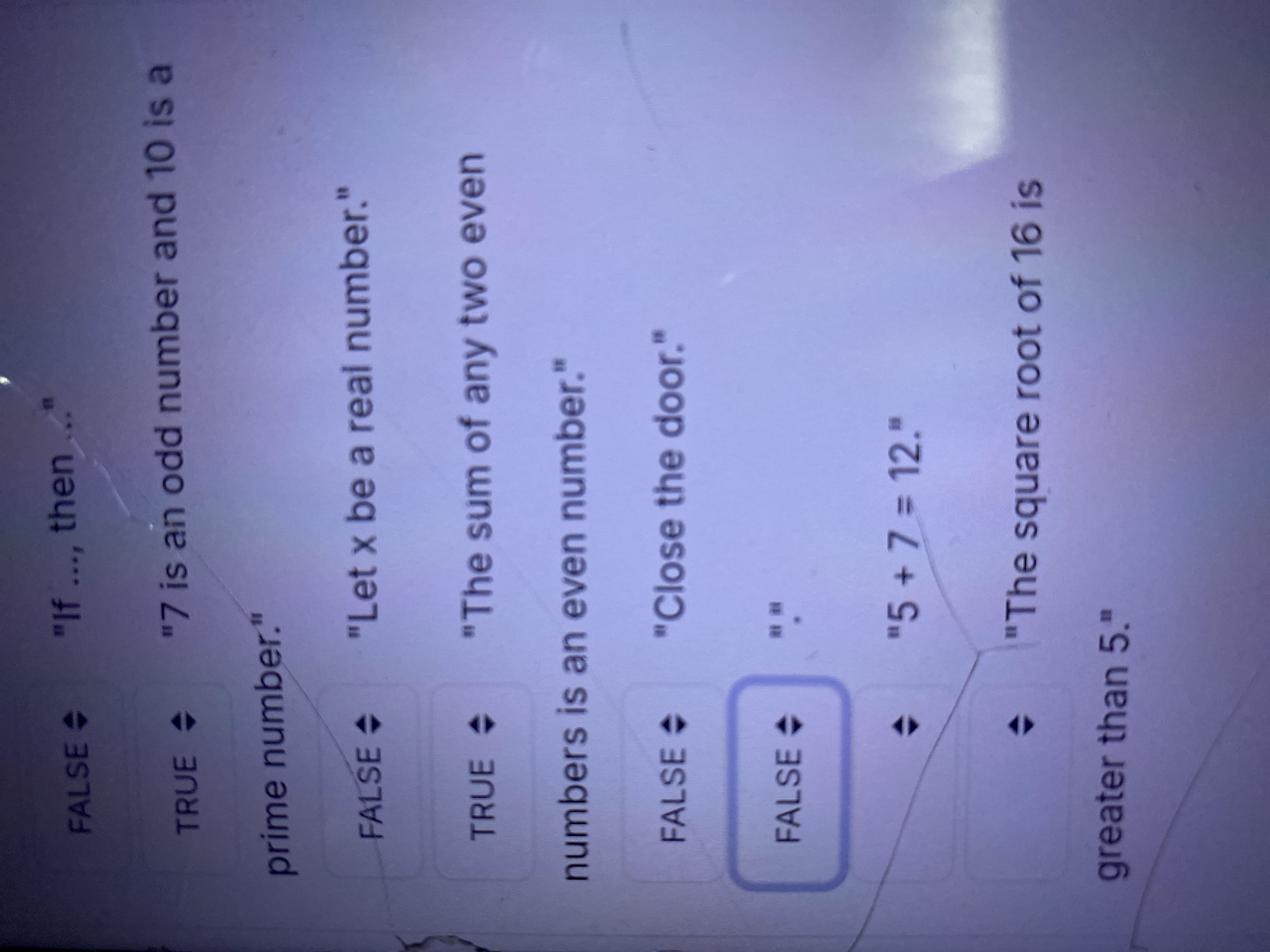Determine the truth value of the following statements: 1. 'If ..., then ...' 2. '7 is an odd number and 10 is a prime number.' 3. 'Let x be a real number.' 4. 'The sum of any two e... Determine the truth value of the following statements: 1. 'If ..., then ...' 2. '7 is an odd number and 10 is a prime number.' 3. 'Let x be a real number.' 4. 'The sum of any two even numbers is an even number.' 5. 'Close the door.' 6. '5 + 7 = 12.' 7. 'The square root of 16 is greater than 5.'

Understand the Problem
The question involves determining the truth value of various statements related to mathematics, particularly with respect to odd and even numbers, arithmetic operations, and mathematical definitions.
Answer
1. Undetermined, 2. False, 3. Undetermined, 4. True, 5. Not evaluable, 6. True, 7. False.
The truth values are: 1. Truth value can't be determined without specifics. 2. False, 10 is not a prime number. 3. Truth value can't be determined, it's a declaration. 4. True, sum of two even numbers is even. 5. Not evaluable as true/false, it's an imperative. 6. True, 5 + 7 = 12. 7. False, square root of 16 is 4.
Answer for screen readers
The truth values are: 1. Truth value can't be determined without specifics. 2. False, 10 is not a prime number. 3. Truth value can't be determined, it's a declaration. 4. True, sum of two even numbers is even. 5. Not evaluable as true/false, it's an imperative. 6. True, 5 + 7 = 12. 7. False, square root of 16 is 4.
More Information
- 'If ..., then ...' needs specifics to evaluate. 3. 'Let x be a real number' is a statement of possibility. 5. 'Close the door' is a command, not factual.
Tips
Often people mistakenly categorize commands or non-specific statements as having a truth value.
AI-generated content may contain errors. Please verify critical information